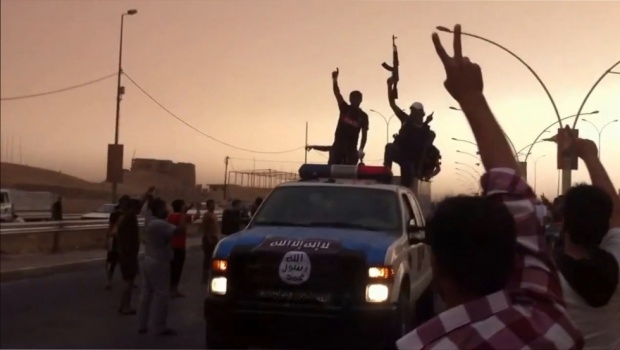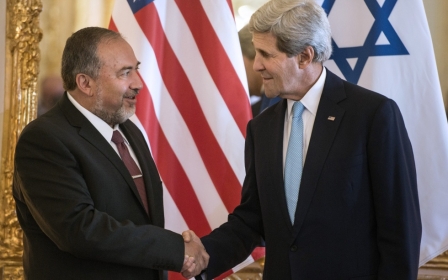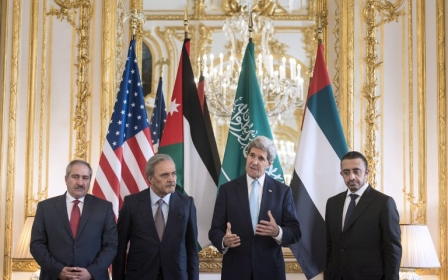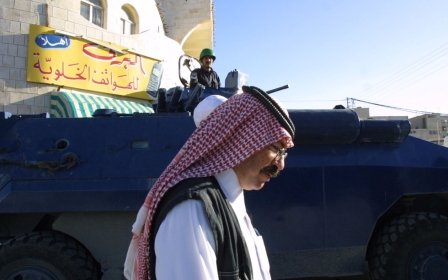Islamic State supporters in the West speak out

“I don’t know about the other bros, but I’m pretty much Western in my culture,” says Abu Noor, a 22-year old with an American accent, easy laugh and impeccable manners. “I’m like a regular Western guy.”
Born in France and raised in the Caribbean by a European mother and an Islands father, Abu Noor in many ways embodies the best of the West: trilingual and university-educated, a third-culture kid equally at ease talking about Lupe Fiasco or Sykes-Picot.
But he’s not a regular Western guy. Abu Noor is a self-proclaimed jihadist and a supporter of the Islamic State, the self-declared caliphate that emerged out of Islamic State’s (IS’s) bloody blitzkrieg across Iraq last month.
He’s a would-be foreign fighter who hasn’t yet fought: a university student (double major: Arabic and international relations). He’s the young man in an explosives vest and a black mask, back when he was a guy who rode the metro and had a term paper to finish by Friday.
Abu Noor and other young men – and some women – in Europe are quickly becoming what the world beyond the Islamic State is most afraid of: a vast, invisible, highly motivated base of support for a hyper-violent group the West not only cannot negotiate with, but is struggling to fully understand.
While it’s tempting to dismiss IS supporters as brainwashed or bloodthirsty, conversations with a group of these young men reveal theirs is a more nuanced position than that.
Equally, it’s inaccurate to regard the IS as the West’s next enemy, a sort of al-Qaeda v.2, says Faisal Devji, an Oxford University historian who specialises in studies of Islam, globalisation and violence. “The Islamic State doesn’t want to join the international system. They want to exit it.”
A crucial element of the IS ideology and the motivations of the people behind it is the sense that the middle ground no longer exists. “These guys refuse to permit other Muslim militant groups to co-exist with them,” says Devji.
Charles Lister, Visiting Fellow at the Brookings Doha Center and an expert on the Islamic State, agrees. “Al-Qaeda affiliates and independent jihadist groups must now definitively choose to support and join the Islamic State or to oppose it.”
'All the atrocities of the Syrian regime'
On the battlefield, that choice may come down to logistics – who has the weapons, territory or money. But at a grassroots level, young militants speak of making a choice between defending Sunni Muslims, who they believe have long been oppressed by governments, armed groups and Shiite Muslims, and standing with the oppressors. They can find no middle ground.
Abdul Malek, a twenty-something IT graduate from a Gulf state that he did not wish to be identified, is - like Abu Noor - waiting for his chance to go to the IS and fight for it. He cites the state-sponsored violence in Syria as his own turning point towards militancy.
“To begin I was neutral about jihadi groups. But Syria happened, and all the atrocities of the Syrian regime. When I saw those gruesome images on Twitter, I found it difficult to eat that day. My heart moved.”
From here it was a short step to supporting the lone group he believed opposed this violence – the IS. “These proxy regimes keep on oppressing Muslims, and nobody says a word about it, so it keeps breeding on and on like a fire,” says Abdul Malek. “It’s like a fire.”
For Abu Noor, the fire started with the death of Osama Bin Laden. “I didn’t really agree with al-Qaeda, but the way all the non-Muslims were partying in the streets at his death, it made me think, whose side am I on here? Can’t I just be neutral?”
But like Abdul Malek, when war broke out in Syria and ricocheted through social media, he couldn’t just be neutral. “When you see those images, bloody children crawling in the streets of Homs, the Syrian Army burying a man alive, there was no other way except to fight back,” he said.
It’s the globalised nature of the IS’s support and their grievances that is of most concern to Devji. “Every incident that occurs in the Muslim world or abroad feeds into this kind of thinking, but you can no longer make the argument that things come from one place and go to another. There is no point of origin.”
For a sign of just how globalised the IS’s membership is, look no further than Abdallaah a 19-year-old convert raised by a straight-laced atheist family in a Scandinavian country he did not wish to be identified. Although his parents were supportive of his conversion to Islam, they don’t support what he calls the “change in my methodology”, to militancy and eventually the IS. He also was driven by a need to take a stand on violence towards Muslims.
“It’s hard to convince someone who has lived in the West their whole life and has a bias against Muslims in general, when you support an organisation the world calls terrorists,” says the teenager (who has lived in the West his whole life).
Feeling pushed to choose a side
Like Abdul Malek and Abu Noor, Abdallaah describes feeling pushed to choose a side. “I saw what people said about the Islamic State, and then I saw what happened really,” he said, referring to violence against Sunni Muslims by different factions in Syria. “I saw that what the people said was false. So I rejected it and I decided to join the Islamic State.”
For now, Abdallaah is stuck in a media support role: his attempt to travel to Syria to fight last year was rumbled by his country’s intelligence service, which continues to keep a close eye on him “because they know I want to go”.
The experience of another young member of the IS, who is also from a Scandinavian country that he did not wish to be identified, and who is a prolific tweeter who goes by the name Abu Bakr al Janabi, offers some insight into the balance intelligence services need to strike in managing the security threat posed by militant nationals looking to fight.
“I haven’t done anything that goes against the law. But if I was in the UK or Belgium or the Netherlands or France, that would be another story,” he says. “I know how far I can go.”
Jonathan Peste, the Swedish Security Service's counter terrorism chief analyst, admits it is a fine line for all parties. “We know that at least 80 individuals have travelled from Sweden to Syria to join various al-Qaeda-inspired groups in combat, and there is unconfirmed information that the actual number is much higher,” he said.
“But it falls outside our remit to stop people from having certain opinions, or supporting certain ideologies. Protecting our democratic system and the rights and freedoms of our citizens, on the other hand, is part of our remit.”
Identity is another factor drawing young people to the IS. Two of the four young men interviewed for this article are third-culture kids, young people born into one culture and raised in another. There are many others like them across Europe, the US and Canada – places their parents emigrated to, and places they may have never quite fit. For them, membership in a transnational group feels like home.
“Now when people say, ‘where are you from’ I can say, I am from the Caliphate,” says al Janabi, who has spent half his life in Iraq and half in Scandinavia. “I have Iraqi citizenship, but in the future we will have IS citizenship.”
The young men insist this as-yet-hypothetical citizenship will offer the kind of services they have enjoyed in France, Jamaica, Scandinavia and the Gulf: education, health care, social support and a criminal justice system. Abu Bakr points out that the IS has already started to print licence plates, and Abu Noor commends its habit of building state institutions on newly-conquered territory. But he admits, “It’s a debate, how would a caliphate function in the modern world?”
'IS never kills civilians, women or children'
The elephant in the room is what Lister calls the IS’s “harsh medieval justice” – and on this point, it’s difficult to move beyond the fundamentalism that drew these young men to the IS to begin with.
“The IS never kills civilians, women or children. And if any fighter is found guilty of it, they are executed,” says Abdul Malek, dismissing out of hand examples to the contrary, and pointing out that the IS’s much-publicised crucifixions are “only for treason, and really those are just executions and putting them up on the boards – there are no nails involved.”
“If you have a more nuanced view you would see the way the IS does things is pretty merciful,” says Abu Noor. “No torture, killing by a head shot… When I see those videos I tell myself, his end could be so much worse.”
Accusations of excessive violence fall on deaf ears with these young men: their certainty in the Caliphate and its ability to implement sharia, a thing they know and trust, is absolute.
Whether this will hold together in a Caliphate where religious authority has been democratised to the point that anyone can claim it, as Baghdadi did, is anyone’s guess. Devji thinks it’s unlikely.
“You know, who are these guys? They’re not claiming to interpret the Koran and make rulings on the basis of any religious authority or training, but only on the basis that they are the ones who have conquered this piece of territory,” he says.
But for the young men who have sworn allegiance to Abu Bakr al-Baghdadi, who are sick of being history’s underdog, who dream of checking out of the non-Muslim world, black passport in hand – for now, this piece of territory is enough.
New MEE newsletter: Jerusalem Dispatch
Sign up to get the latest insights and analysis on Israel-Palestine, alongside Turkey Unpacked and other MEE newsletters
Middle East Eye delivers independent and unrivalled coverage and analysis of the Middle East, North Africa and beyond. To learn more about republishing this content and the associated fees, please fill out this form. More about MEE can be found here.




